Hello!
Immaculata here.
First, the announcement: No Tuesday episode this week. I’m taking a break to gather myself.
This past week was a good one for Studio Styles. I got the final document files for Restful magazine from my designer, Radhika. And the podcasting work felt really good—enjoyable in way it hasn’t felt since July. Working on these projects all year has been a chef’s-kiss experience because it’s all I ever wanted to do in this life. But a lot of doubt, drudgery and first-timer mistakes have come with the work since September and it has felt like that part of a gym session where you hit your old limit and the real work begins—the work of endurance and stamina. Anyway, thank you for being here, for listening, and for spreading the word. I pray inspiration into every episode and I hope it finds you.
On the podcast this past week, I shared an audio essay on Nigerian 'nervous conditions', and a conversation with Aaliyah Ibrahim, an artist and international development practitioner. I meant to also upload the one with Didi Cheeka as well but I wasn’t able to finish with it yesterday, so it’s been moved to next weekend. No two conversations in this project are as complementary to each other as these two between Aaliyah and Didi. In both of them, we discussed alienation & belonging, repression of difference & freedom, violence & sensitivity, catastrophe & the opportunities for change embedded in catastrophe.
This week marked the half-way point (four weeks and 10 episodes gone, four weeks and 11 episodes to go).
Listen to chapter 3 above, and for the conversation with Aaliyah O. Ibrahim, check here for links from wherever you listen to podcasts.
‘Memory will break your heart, but memory will also heal you.’ - Didi CheekaPlease spread the word, rate the show or leave a comment if you enjoy an episode. Word of mouth goes a long way. Here’s some of what people said this week:
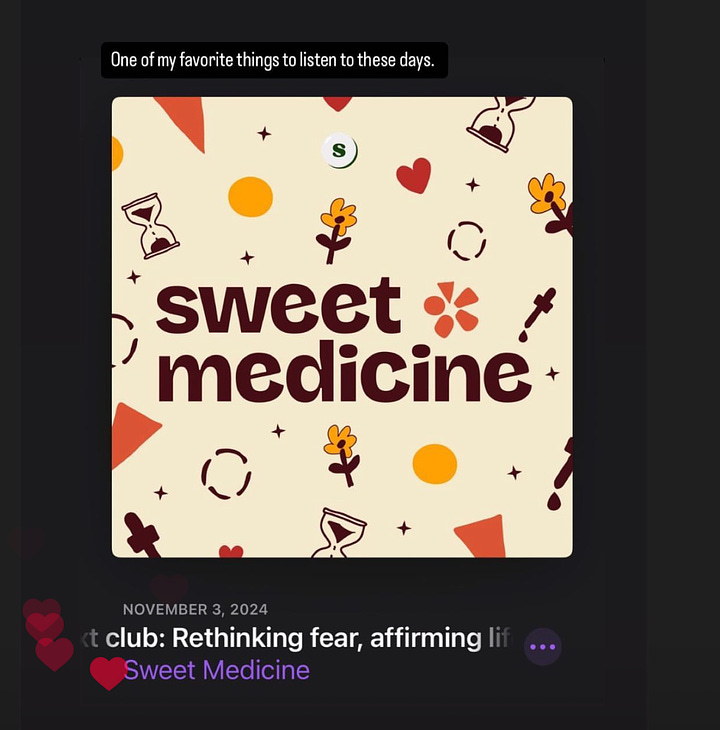
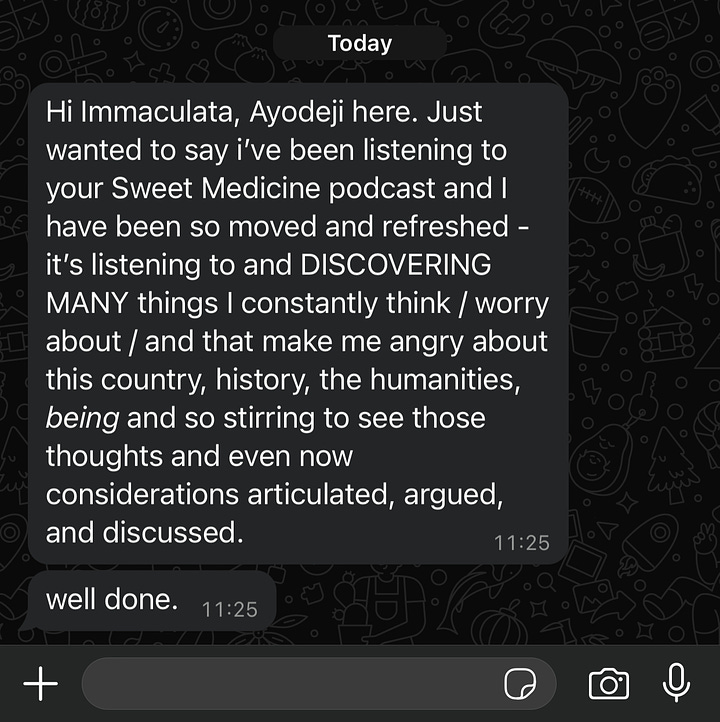
Nigerian Nervous Conditions (listen above)
I can trace the kernel of this chapter to February last year when I was asked this question by The Republic for their First Draft series: “The bulk of your work (as a writer, researcher, and visual artist) explores how Africans are making a living. Why is this important to you?”
And I replied: “It is important because life can be very hard and a lot of us get really tired. I’d like for us to be less tired, or at least for us to not have to work through exhaustion and onslaughts against our nervous systems. But we often have to work through all of those because we lack security, social protection, secure means of livelihoods, homes where we can relax, strong community structures, or on the individual level compassionate senses of self.”
This episode is a reflection on alienation, catastrophe, random acts of violence, cognitive dissonance, self-denial, brain fag syndrome, and some of the -isms at the root of these Nigerian nervous conditions today. It includes the voices of the film archivist Didi Cheeka, the international development practitioner Aaliyah Ibrahim, the artist Obayomi Anthony, and the founder of Pax Herbals, Fr Anselm Adodo.
01:57 Tsitsi Dangarembga’s Nervous Conditions
05:03 Historical Context & Brain Fag Syndrome
07:55 Crisis of Meaning and Cognitive Dissonance
11:19 Alienation in Nigerian Society
15:09 Marx's Theory of Alienation
19:51 Understanding Nigeria's Political and Economic System
22:40 Catastrophe—Interminable and so, Interruptable
“Resilience is when people have the tools to change.” - Aaliyah O. Ibrahim
(Acast link)
Aaliyah O. Ibrahim is a multidisciplinary artist and international development practitioner. In her development practice, she works at the intersection of resilience and gender-transformative outcomes for human development.
We spoke about the complexities of Nigerian identity, resilience as a practice of change, and unity and freedom as practices of difference. Anchoring our conversation was Professor Bedour Alagraa’s concept of ‘The Interminable Catastrophe’.
01:19 Exploring the Interminable Catastrophe
09:57 The Otherways, the Otherwise
12:36 Making History and Self-Awareness
16:46 “I’m not a healer as much as I am sensitive and I want to be well.”
18:57 Interruption
22:56 Land, Indigeneity, Language and other claims to Nigerianness
34:49 Resilience and Change
38:51 “Our intellectual class is getting too comfortable with its nervousness.”
43:38 Afrobeats to whose pockets?
Full transcript is not yet live but will be on this page.
Follow the Sweet Medicine podcast on Spotify, Apple Podcasts, Amazon Music and more.






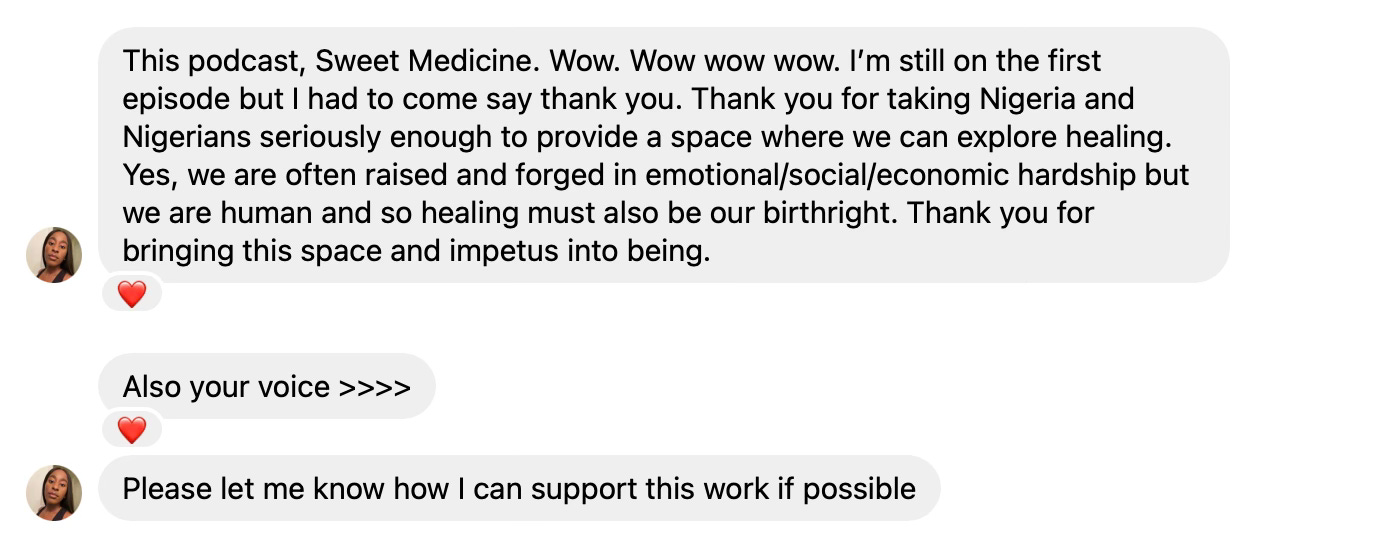
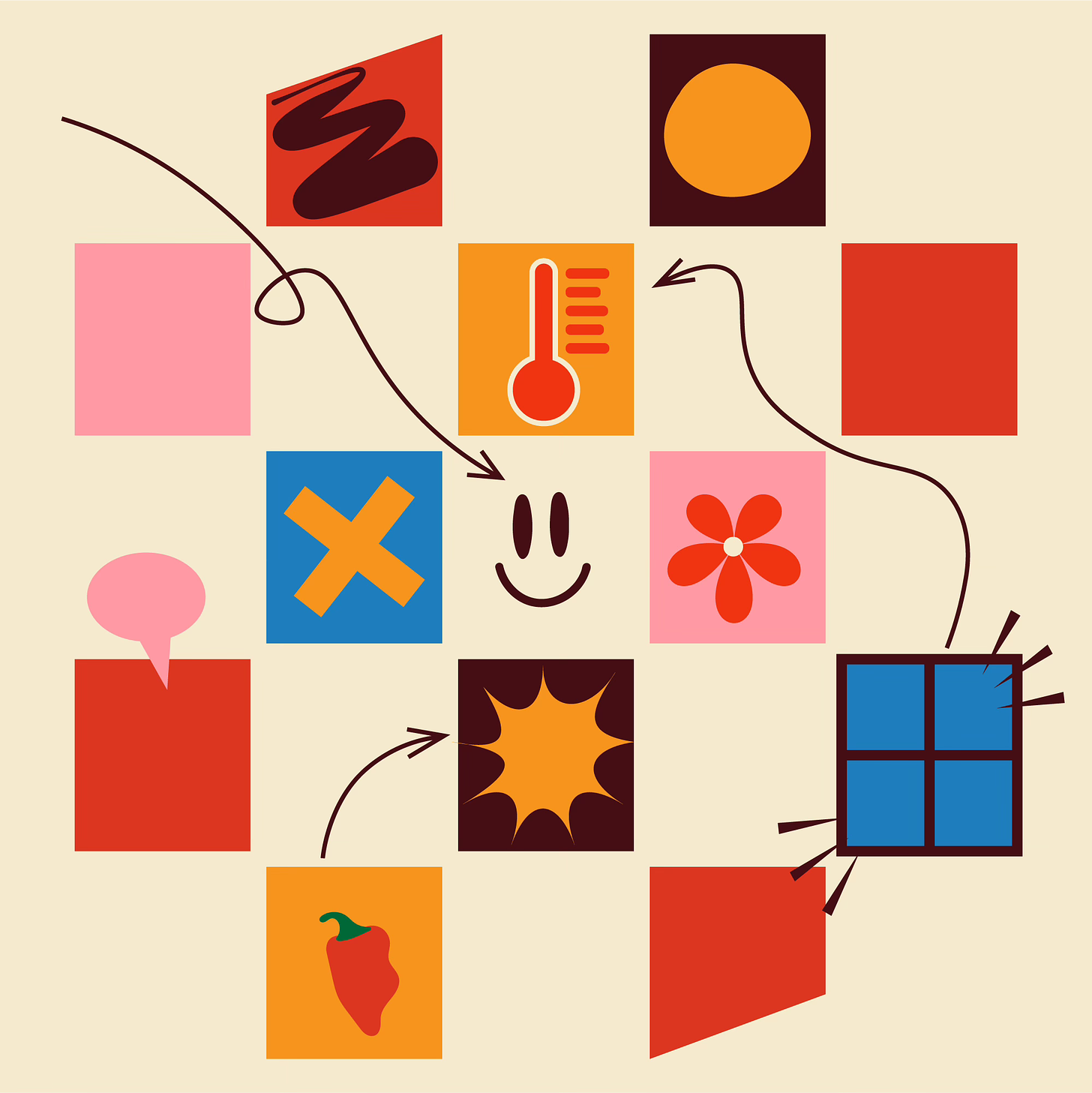

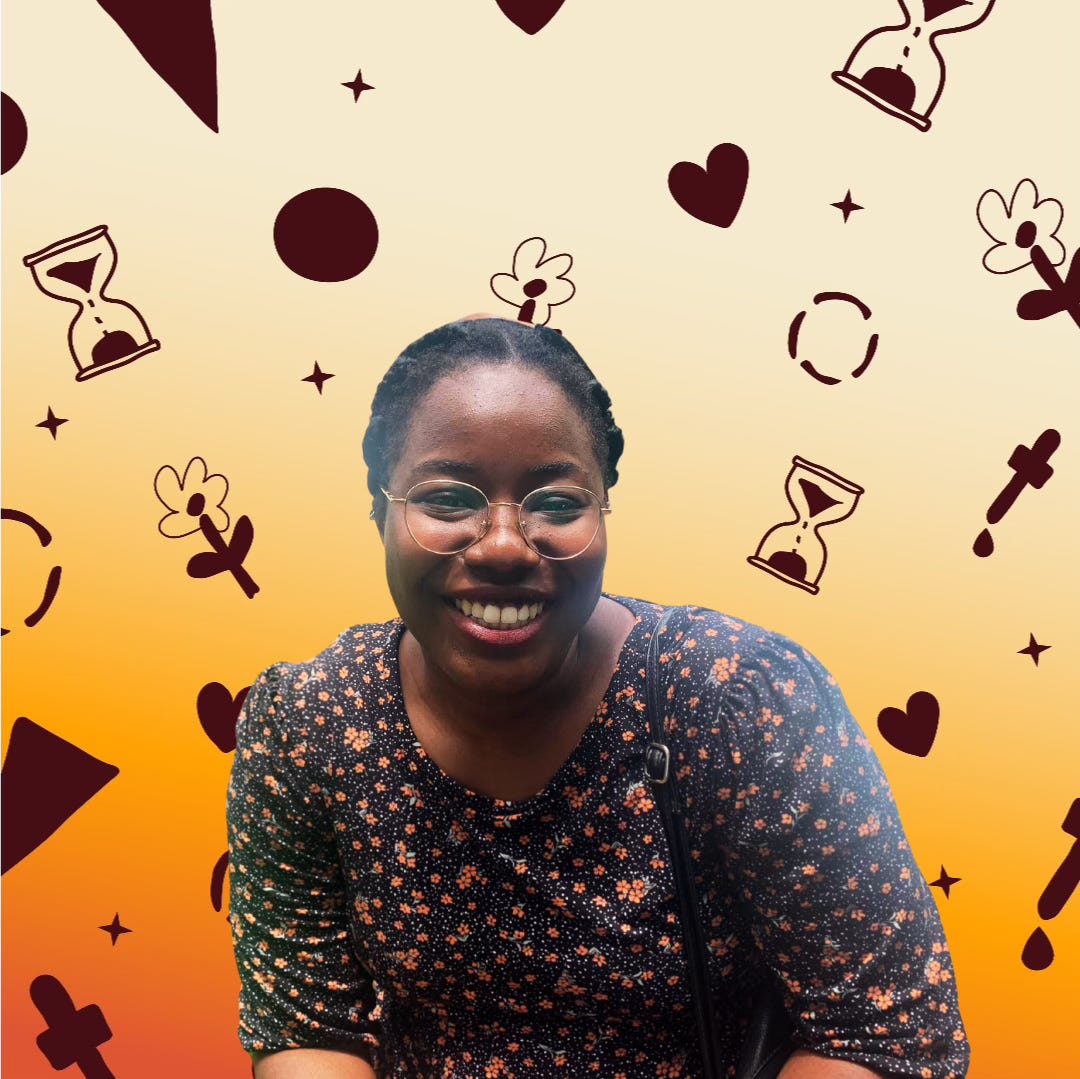



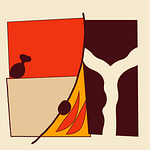




Share this post